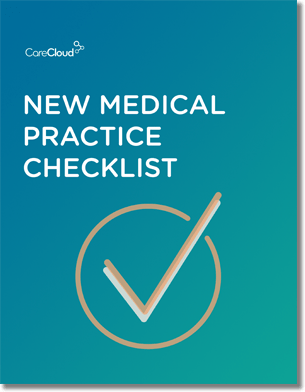Prior to March, you could count on receiving your Meaningful Use incentive payment within 8 to 12 weeks of successful attestation. Not anymore. In March, the Centers for Medicare & Medicaid Services began conducting Meaningful Use prepayment audits, which will delay payments.
According to CMS, between 5% and 10% of attesting physicians will be chosen for prepayment auditing. This is in addition to the post-payment audits that CMS has conducted since 2012, which will continue to affect another 5% to 10% of physicians.
What does this mean for you, the physician?
Jim Tate, President of EMR Advocate, Inc. and nationally recognized EHR expert, will address this question and more in our upcoming webinar on Meaningful Use audits.
In a bit of a preview, we sat down with Tate so he could answer some of our most pertinent questions about Meaningful Use audits.
1) How do Meaningful Use audits disrupt a physician’s practice?
An audit requires practice to immediately allocate sufficient resources to answer the request for documentation. There will be timelines associated with the audit, and they must be met.
2) What are a few things physicians can do to avoid getting audited?
Some audits are totally random but some are generated by the presence of unlikely data provided during the attestation. If all percentage-based measures you report have the same denominator, it is highly likely that the attestation has errors. Pay attention to the details, and don’t submit any attestation unless you clearly understand the details.
3) How do physicians know they have been chosen for an audit?
Physicians are notified based upon the contact information documented during the registration/attestation process.
4) What should physicians do to prepare for the auditing process?
The retention of all documentation used during the attestation is necessary. The auditors will ask you to provide evidence to justify your attestation and any discrepancies must be explained. One of the most misunderstood requirements is the Security Risk Analysis. This does not apply to the vendor, but to the practice or hospital. The auditors will want to see your Security Risk Analysis documentation.
5) Will the audit process delay the payment of Meaningful Use incentives?
Until early this year, incentives were distributed based on the submission of the attestation. Audits were not performed until after payments had been made. These post-payment audits have now been joined by pre-payment audits. These pre-payment audits must be completed successfully before incentive payments are disbursed. A delay in the pre-payment audit process will lead to a delay in potential incentive disbursement.
Tate will go into more detail about each of these questions, plus share tips and tales from the industry, in our upcoming webinar. With his advice, you’ll be able to keep pre- and post-payment Meaningful Use audits from slowing down your practice.

Do you know what you need when setting up a new medical practice?


